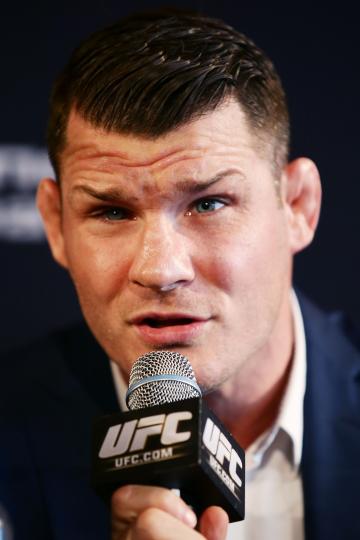Cung Le demands apology from UFC

Rare is the fighter who tests positive for a performance-enhancing drug (or, in the case of Chael Sonnen, drugs) who doesn't question either the test results, the test procedures or both.
But when a fighter is vindicated, it's almost as if we're not sure how to act.
The UFC rescinded Cung Le's 12-month suspension for testing positive for human growth hormone following his loss to Michael Bisping on Aug. 23 in Macau, China. But Le insisted he hadn't taken anything illegal and several notable figures in the drug testing community, notably Dr. Don Catlin of AntiDopingResearch.org, came to his defense.
Catlin told MMA Junkie, "I think [the test done by the UFC] is useless. I wouldn’t pay any attention to it all."
Given the overwhelming evidence that the testing procedure was flawed, the UFC rescinded the suspension.
But in its statement announcing the recision, the UFC was very careful to avoid apologizing or otherwise exonerating Le. It announced essentially that there were enough questions about the validity of the test that it would remove Le's suspension.
That, however, wasn't good enough for Le, who released a statement Thursday demanding an apology from the UFC.
"I am extremely happy with the UFC’s decision to rescind my suspension," Le's statement read. "I believe the issues raised in regards to the testing procedures as well as the manner in which the results were determined by the UFC clearly support my assertion that I did not use any performance-enhancing drugs. I am also happy to take away the fact that the UFC has decided to make the proper changes in their testing procedures which will now ensure that no athlete will ever have to endure the same hardship.
"While I feel vindicated in this matter, the UFC’s press release does little in the way of an apology of which I believe I am rightly owed after unfairly enduring the public’s scrutiny. Their decision to announce me as a user of performance-enhancing drugs with little thought to the accuracy of the testing or proper procedures has caused my family and I great pain; that we have now come to know was completely unnecessary had the proper care been taken to ensure my test results were in fact valid proof of impropriety."
There are myriads of fighters who are cheating and using performance-enhancing drugs. All one has to do is to speak privately with fighters who are frustrated by the high number of users to understand it's a serious issue.
The UFC has been working to find a solution and has indicated that, in some form in 2015, it will implement a vigorous drug testing protocol. It will be long overdue when it comes.

But the most important thing in drug testing is to get it right, to be absolutely certain that the test is accurate and all procedures are followed to the letter. There are serious implications which flow from incompetent, or mistaken, tests.
First, and the most egregious, is the damage it does to the reputation of the fighter singled out. In this case, Le was branded a drug cheat and may never be fully able to escape that reputation. Michael Bisping, who had defeated Le in Macau, noted that Le had gotten off on a loophole or a technicality.
So, while the suspension was removed, it's not as if the UFC took responsibility for the mistake and apologized for it publicly.
But flawed testing hurts the total anti-doping effort, because it gives a strong voice to those who are cheating. If one can't trust the results, it's a Wild West.
Le came under scrutiny when he released a photo on Instagram showing himself to be unusually buff. Bisping saw it and complained. And who could blame Bisping, given that he had fought a number of fighters who were on synthetic testosterone or other PEDs?
Setting up an anti-doping protocol isn't something that can be done in three or four days. And so while the UFC tried to do the right thing, it wound up making a critical, devastating error.
It's an error that may haunt it for a long time.
The answer to this was to become a signatory to the World Anti-Doping Agency code and to hire an independent outlet, like say the U.S. Anti-Doping Agency, to administer its program. That may in fact be what is to come.
But it's way late and the UFC is going to have to dig itself out of a major hole just as it embarks on its new program.
Ridding combat sports of performance-enhancing drugs should be a significant priority for all promoters, but this debacle has complicated the effort and made it all the more difficult.


